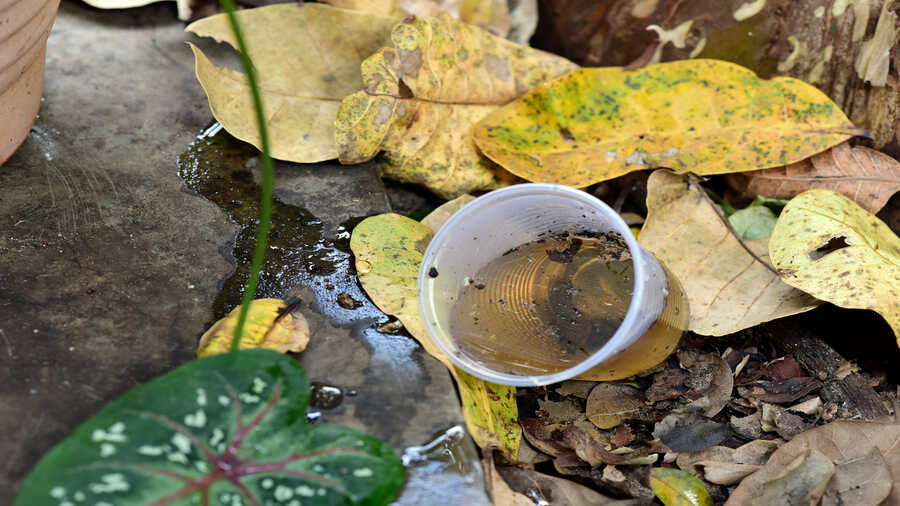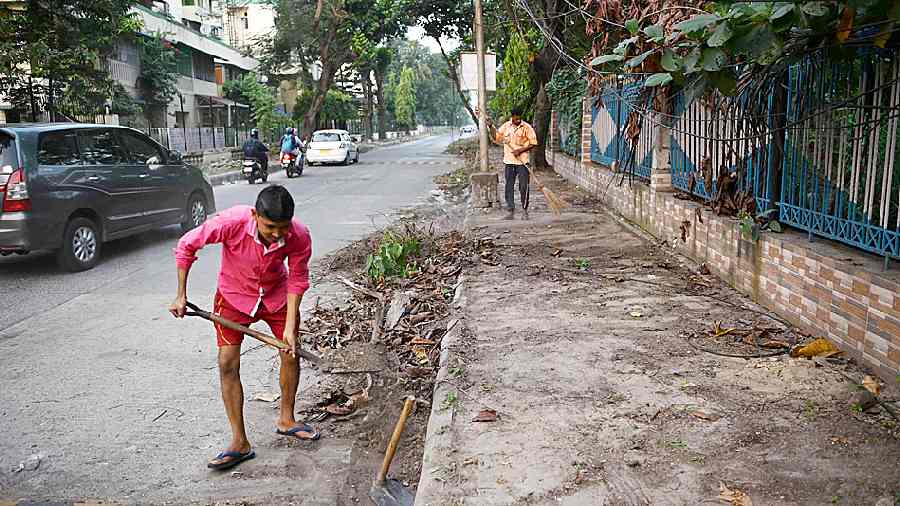Kolkata Municipal Corporation (KMC) this year has sent notices to the owners of about 8,000 properties which were found to be hosting mosquito-breeding sites because of accumulated waste and/or clogged drains, and fanning the spread of dengue.
But only 21 of the owners have got cases filed against them by the KMC. “These owners will have to pay a penalty, the amount of which will be decided by the court,” a KMC official said.
Bidhannagar Municipal Corporation (BMC) has sent notices to 80 property owners for a similar reason, but filed cases against none. South Dum Dum Municipality has sent notices to 50 property owners, but no case has been filed against any of them.
The civic bodies have for months been blaming people for allowing their properties to become mosquito-breeding sites and foiling all attempts at dengue control, but have done precious little to force people into action.
The civic bodies are empowered to take to court those people who allow their properties to become mosquito-breeding grounds. The court decides the penalty amount an errant property owner has to pay.
Atin Ghosh, deputy mayor of Kolkata who also heads the KMC’s health department, admitted that the number, 21 cases out of 8,000 notices, was very less. But the KMC’s motive, he said, is not to impose penalties on people.
“In many of the cases where notices were issued, the owners complied with our directions and cleaned their properties within a few days. So there is no need to file cases against them. We filed cases only against those who did not clean their premises despite repeated warnings,” Ghosh said.
Banibrata Banerjee, mayoral council member, health, BMC, said they did not file any case because property owners had cleaned their premises. Sanjoy Das, member of the chairman-in-council, health, South Dum Dum Municipality, echoed Banerjee.
A statement issued by the KMC on Saturday said 6,052 dengue cases were reported from the Kolkata municipal area between January and November 6. The statement says the dengue count this year is higher than last few years’.
A public health expert said civic bodies should aggressively take action against the owners of commercial properties, under-construction buildings and locked factories if mosquito-breeding sites were found on the premises.
The Aedes aegypti mosquito, the transmitter of the dengue virus, can breed even in a spoonful of water.
Proper disposal of solid waste is a must to reduce the mosquito population, entomologists have said. Solid waste contains small containers such as tea cups, which turn into mosquito-breeding sites if water accumulates in them.



